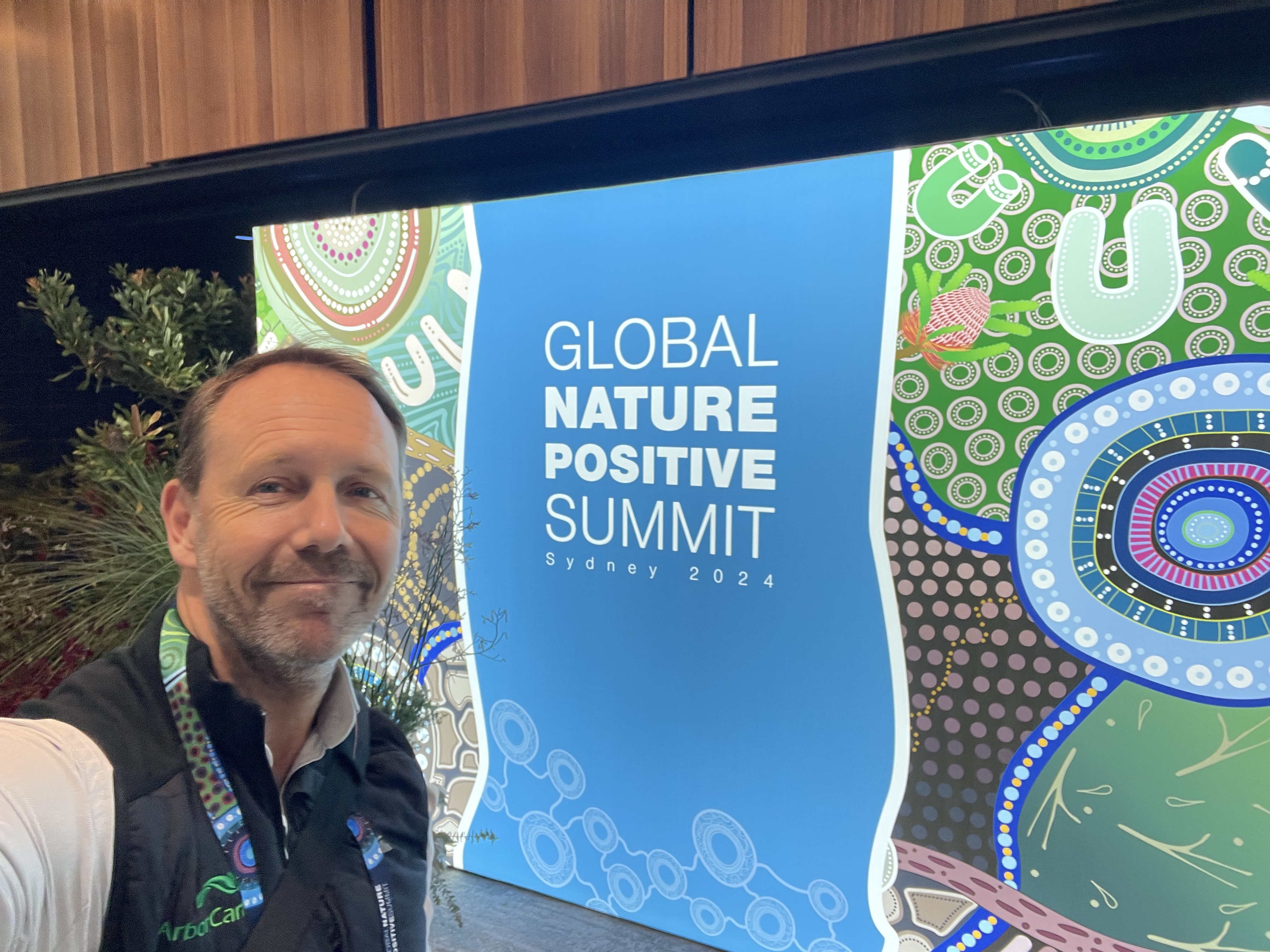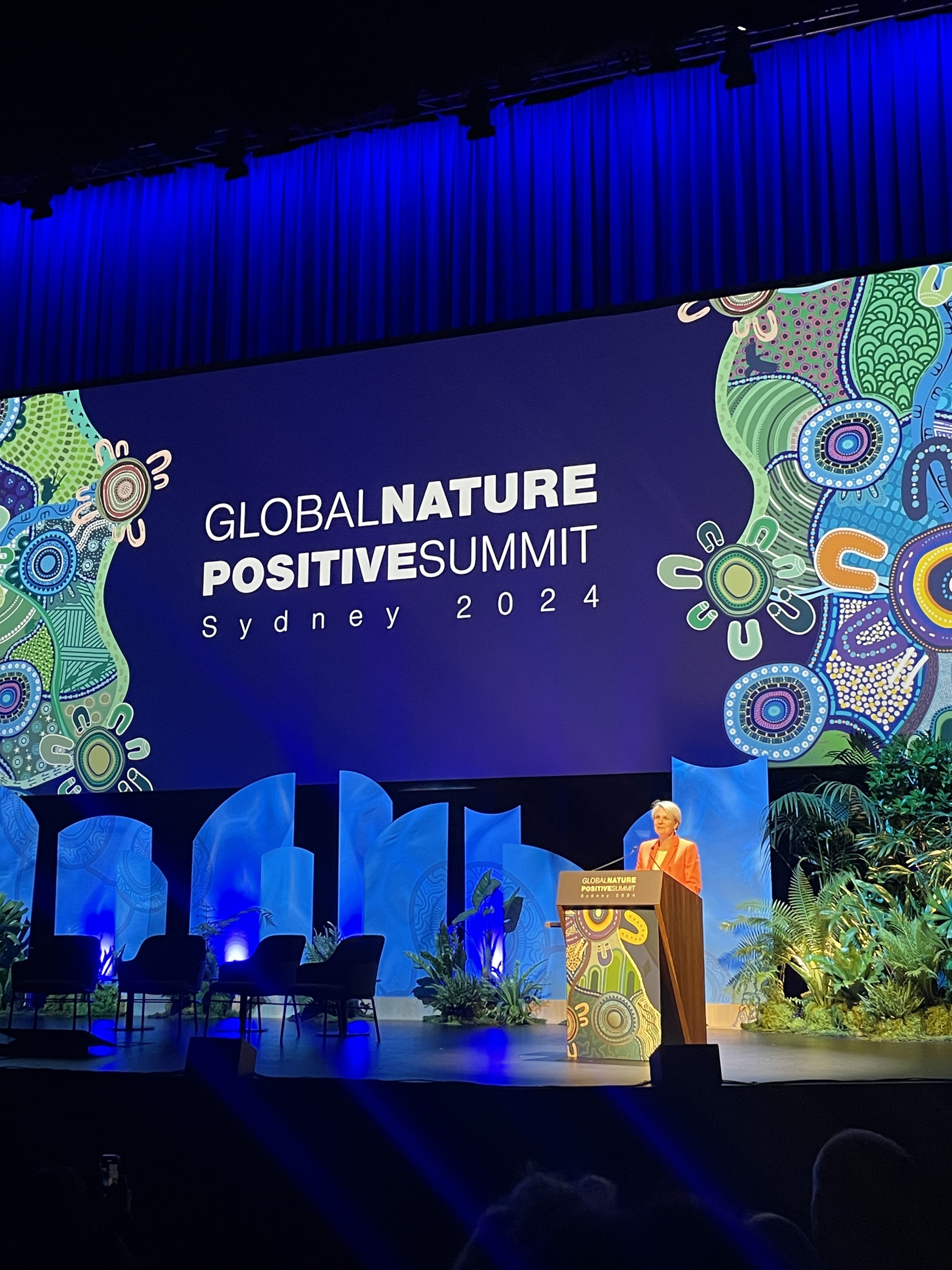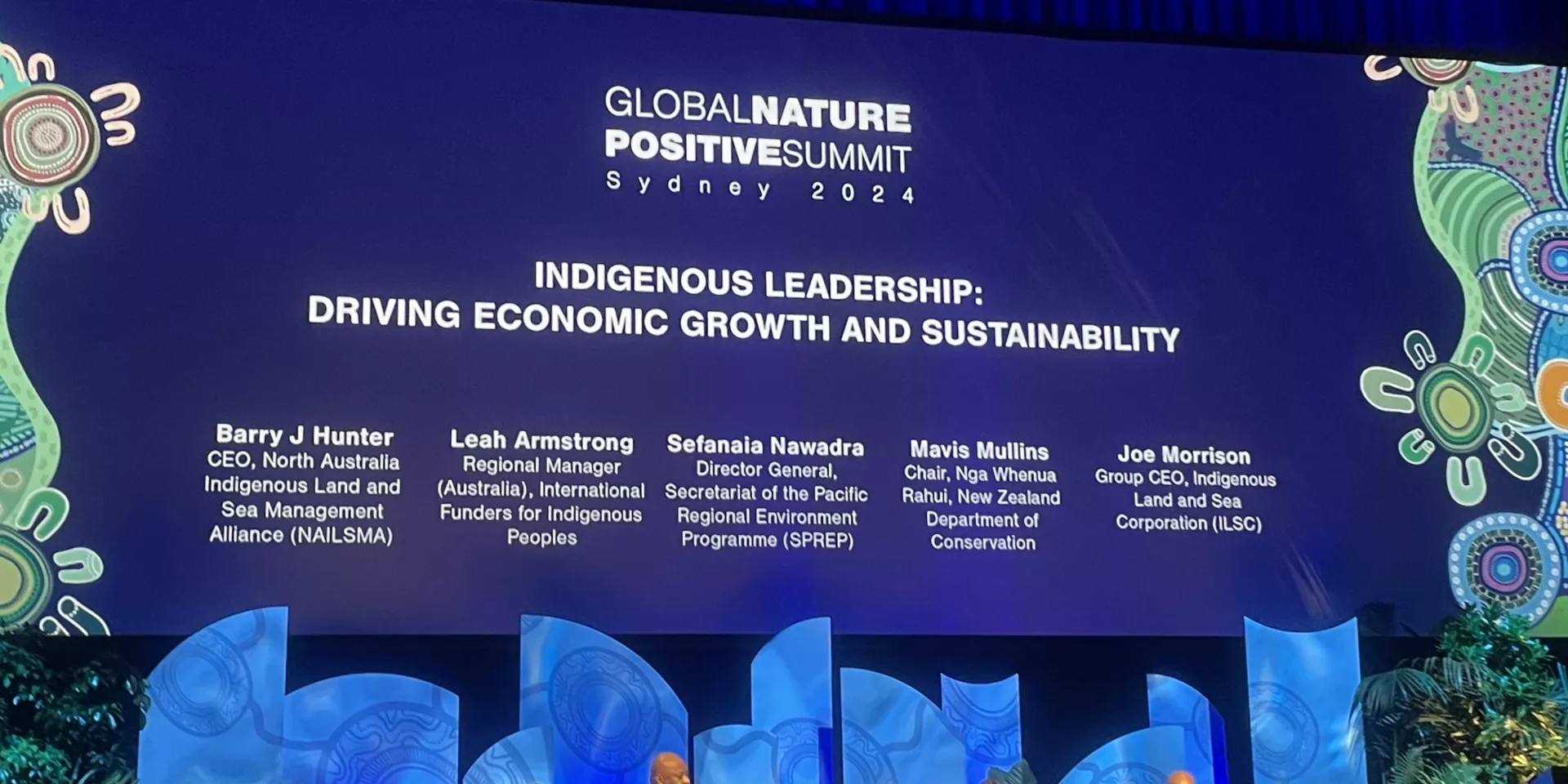Trillion Trees Australia President Dr Paul Barber, was one of about 1000 delegates who attended the inaugural Global Nature Positive Summit. Held last week on Gadigal Country in Sydney, this world first event was billed as an opportunity to accelerate collective action to drive investment in nature by bringing together leaders from government, corporate sectors, research and environmental organisations and Indigenous Peoples.
“This world first event was overwhelmingly positive - I was most looking forward to the opening plenary and it was certainly the highlight for me,” explained Paul. “Entitled ‘Indigenous Leadership: Driving economic growth and sustainability’, this opening plenary truly set the scene for the summit and was a call to arms from our indigenous leaders to everybody.”

In the opening plenary, Indigenous leaders from Australia, New Zealand, and the Pacific showcased their deep cultural connections to land, water and seas, to address how Indigenous-led initiatives are delivering economic returns, strengthening community and promoting self-determination.
“We heard about the critical importance of respecting Indigenous cultural leadership,” continued Paul. Over 80% of biodiversity sits on Indigenous lands, yet only a tiny amount of funding goes directly to indigenous groups. “Indigenous-led financial models for protecting and improving country and people will require courageous moves and decisions.”
Australia’s economic dependence on nature was an emerging theme of the event. “Carbon credits have become most important for many as corporates see the dollars, however, nature is the most important,” added Paul. “We are all interconnected. If the environment becomes sick, then people become sick. We need to manage land, sea and rivers collectively as they are not separate, and acknowledge that we are the youngest sibling to the environment. It is time for less talking and more action.”

In her closing address, Hon Tanya Plibersek MP (Minister for Water and the Environment) noted the key themes that came out of this inaugural event:
Nature needs to be factored into economic and business decisions.
To make good decisions, we need to understand, measure and report on our economic dependence on nature, our impacts on nature and the value of ecosystems services that our communities and economies rely upon.
Clear and consistent metrics are important.
Environmental metrics used to talk about impacts on nature and the condition of natural assets should be standardised – so everyone is speaking the same language when they report on nature and it’s easier to make progress towards nature positive goals.
Indigenous leadership is key to sustainability.
Traditional knowledge plays a vital role in looking after nature, and Indigenous leaders have significant opportunities to influence economic outcomes and have a seat at the table.
Nature-positive and net-zero objectives work together.
Nature-based solutions should be used to achieve both environment and climate goals.

